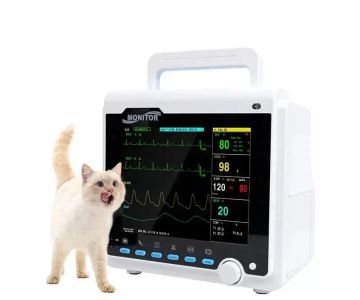Pet Health Calculators: How to Estimate Calories, Dosage, and Weight
- How to Estimate Your Pet’s Calorie Needs
- Calculating Dosage for Medications
- How to Estimate Your Pet’s Ideal Weight
- Visit Hidden Brook Veterinary for Expert Care
How to Estimate Your Pet’s Calorie Needs
Understanding your pet’s calorie needs is vital for ensuring their health. Pets, like humans, require a balanced diet to maintain energy, support growth, and keep their systems functioning optimally. A pet health calculator can help you estimate the appropriate caloric intake based on your pet's age, weight, activity level, and overall health. For example, a dog that is highly active will require more calories than a sedentary pet.
1. Factors Affecting Caloric Intake
When calculating your pet’s calorie requirements, several factors need to be considered. These include:
- Activity Level: Active pets, especially working dogs, burn more calories and need a higher intake.
- Breed and Size: Larger dogs and certain breeds may require more calories due to their body composition.
- Age: Puppies and kittens require more calories for growth, while older pets may need fewer calories to avoid obesity.
- Health Conditions: Pets with certain health conditions, like hyperthyroidism, may have increased caloric needs.
Using a pet health calculator to input these variables can provide you with an accurate estimate of your pet’s daily caloric requirements, helping you make informed decisions about their diet.
Calculating Dosage for Medications
Administering the correct dosage of medication is crucial for your pet’s health. A small miscalculation can result in either an underdose or overdose, both of which could have serious consequences. Pet health calculators are also available for determining the right dosage of medications based on your pet's weight and the type of medication prescribed.
1. Why Accurate Dosage Matters
Just like humans, pets require medications to be tailored to their body size and condition. The wrong dose can either fail to treat the condition effectively or cause harmful side effects. For instance, certain medications like painkillers or antibiotics can be dangerous if given in the wrong amount.
2. Using a Calculator for Medication Dosing
Pet health calculators for medication dosage typically ask for details such as your pet’s weight, the medication’s concentration, and the prescribed dosage frequency. This ensures the right amount of medication is given based on your pet’s specific needs. Always consult your vet before administering any medication, even if you're using a calculator.
How to Estimate Your Pet’s Ideal Weight
Maintaining a healthy weight is essential for your pet’s long-term health. Overweight pets are at a higher risk of developing conditions like diabetes, arthritis, and heart disease. Regular weight checks and using a pet health calculator can help you monitor your pet's weight and adjust their diet or exercise routine as needed.
1. Body Condition Score (BCS)
Vets often use a system called the Body Condition Score (BCS) to assess whether a pet is at a healthy weight. This system ranges from 1 to 9, with 4-5 being considered ideal for most pets. Regularly evaluating your pet’s BCS can help you ensure they are maintaining a healthy weight.
2. How to Calculate Ideal Weight
To estimate your pet’s ideal weight, you can use online calculators that factor in breed, size, and age. Alternatively, consulting with a vet can provide more personalized recommendations based on your pet’s health and activity level.
Visit Hidden Brook Veterinary for Expert Care
If you are concerned about your pet's health and want to ensure they’re receiving the proper care, Hidden Brook Veterinary is here to help. Our team of experts can guide you through the best practices for maintaining your pet’s health, including weight management, medication dosage, and calorie intake. Schedule an appointment today to learn how we can support your pet’s well-being!












